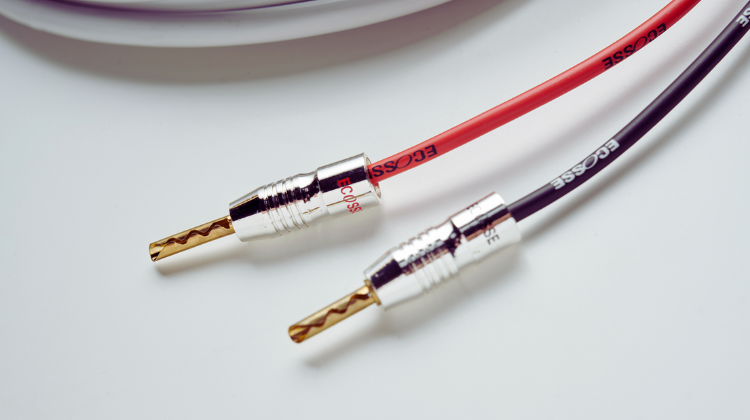What is Good Quality Speaker Cable? good quality speaker cable is an essential component of any audio system, as it serves as the connection between your amplifier and speakers. Its primary role is to transmit electrical signals without distortion or loss, ensuring that the sound remains as accurate and detailed as possible.
While cables may seem like a minor detail compared to amplifiers or speakers, the truth is that the quality of the cable can significantly impact audio clarity and overall performance.
Good quality speaker cables are designed to minimize resistance, capacitance, and interference. These three factors determine how effectively the electrical signal passes from one component to another. A poor-quality cable may degrade the signal, resulting in muffled highs, weak bass, or an overall lack of definition in sound. In contrast, a well-made speaker cable ensures that your system performs to its full potential.
# Importance of Cable Material
The material of the conductor inside the speaker cable is a key indicator of quality. Oxygen-Free Copper (OFC) is commonly used in high-quality cables because it provides excellent conductivity and durability.
Some premium options use silver-plated copper, which offers even lower resistance and slightly brighter sound characteristics. Aluminum, while cheaper, is less efficient and not typically recommended for high-end audio setups.
Insulation material also plays a role in sound quality. Good quality speaker cables often use materials like polyethylene or Teflon for insulation, which prevent signal degradation and reduce the risk of interference. This combination of superior conductor and insulation materials helps ensure reliable long-term performance.
# Thickness and Gauge Considerations
The thickness of the speaker cable, measured in gauge, is another important factor. Thicker cables (lower gauge numbers) can carry more current and are generally recommended for longer cable runs or for high-powered systems. For example, a 12-gauge cable is considered ideal for large home theaters or powerful amplifiers, while a 16-gauge cable may be sufficient for smaller, less demanding setups.
Using the right gauge ensures that the audio signal is delivered with minimal loss, especially when connecting speakers located far from the amplifier. This is why many professionals emphasize the importance of matching cable thickness to your specific system requirements.
# Resistance and Signal Loss
One of the main goals of high-quality speaker cables is to minimize resistance. Every cable introduces some level of resistance, but in good quality cables, this resistance is kept extremely low. Excessive resistance can weaken the signal, reduce volume levels, and negatively impact the sound balance.
By reducing resistance, high-quality cables ensure that the amplifier’s power reaches the speakers with full efficiency. This leads to tighter bass, clearer mids, and more accurate treble, creating a balanced and natural listening experience.
# Shielding and Interference Protection
Another hallmark of a high-quality speaker cable is effective shielding against external interference. Electrical devices, Wi-Fi routers, and even household wiring can introduce noise into the audio signal. Shielded speaker cables use specialized layers, such as braided copper or aluminum foil, to block these interferences.
This shielding is particularly important in environments where multiple electronic devices are operating simultaneously. With good quality speaker cables, you can enjoy uninterrupted sound without the buzz, hum, or distortion caused by electromagnetic interference.
# Durability and Build Quality
High-quality speaker cables are built to last. They feature strong outer jackets made from durable materials like PVC or braided nylon, which protect the inner conductors from wear and tear. This not only extends the lifespan of the cables but also ensures consistent performance over time.
Well-constructed cables also come with secure terminations, such as gold-plated banana plugs or spade connectors. These connectors provide a stable, corrosion-resistant connection that improves signal transfer and reduces the chances of accidental disconnection.
# Performance in Home Theaters and Hi-Fi Systems
For home theater enthusiasts and audiophiles, the difference between average and high-quality speaker cables can be significant. In a surround sound system, for example, using good quality cables helps maintain consistent sound across all channels, creating a more immersive and realistic experience.
In high-fidelity stereo setups, premium speaker cables ensure that subtle details in music, such as instrument separation and vocal clarity, are preserved. This allows listeners to experience sound closer to what the artist or sound engineer intended.
# Value vs. Price
It is important to note that the most expensive cable is not always the best option for every system. Good quality speaker cables strike a balance between performance and cost. For most users, oxygen-free copper cables with proper gauge and insulation are more than sufficient to deliver outstanding sound.
However, for audiophiles with high-end equipment, investing in premium options like silver-plated or braided cables can provide noticeable improvements in sound quality. Ultimately, the best choice depends on your equipment, room size, and personal listening preferences.
# Identifying High-Quality Speaker Cables
When shopping for speaker cables, look for key indicators of quality. These include low resistance ratings, oxygen-free copper construction, durable insulation, and proper thickness for your system needs. Reputable brands often provide technical specifications that help confirm the quality of their products.
Avoid generic or extremely cheap cables, as they often cut corners in material quality and build. Choosing reliable, well-reviewed cables ensures not only better sound but also peace of mind in the longevity of your audio system.
# Final Thoughts on Good Quality Speaker Cable
In summary, a good quality speaker cable is one that provides low resistance, reliable conductivity, effective shielding, and long-lasting durability. It allows your amplifier and speakers to perform at their best, ensuring that the audio signal remains pure and powerful.
Whether you are setting up a small living room stereo system or a professional home theater, investing in high-quality speaker cables is a smart decision. They may seem like a minor detail, but their impact on sound clarity and system efficiency is undeniable. A carefully chosen cable can elevate your listening experience from ordinary to exceptional. What is Good Quality Speaker Cable? High Quality Speaker Cable

